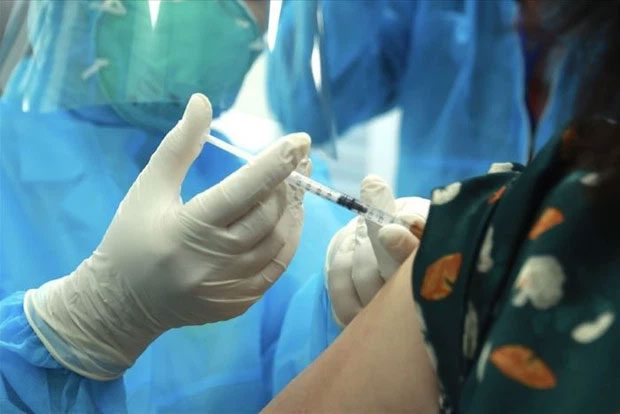The question many people are asking is: Why do some people have a fever after vaccination while others do not? Is it better to have a fever or not? Does having a fever mean the body is developing immunity?
A fever, aches, dizziness, allergies, seizures, or any unusual reactions after vaccination are collectively referred to as “post-vaccination reactions.
Vaccines essentially allow the immune system to “practice.” In simpler terms, vaccines are made from dead or weakened antigens; scientists render the “enemy”—the virus that is usually very dangerous—incapable of “fighting” or “tearing” apart a part of its characteristics and then inject it into the body. The immune system will recognize this “enemy” as per the proper process; of course, at this point, the “enemy” is merely a corpse or has been weakened, so it cannot harm the body.
In our brain, there is also a region called the “hypothalamus.” Its function is to recognize and regulate the body temperature, which is typically around 37 degrees Celsius for a healthy person.
When the body is attacked by bacteria or viruses, they release certain chemicals into the bloodstream to weaken the body. At this moment, the “hypothalamus” receives signals indicating a threatening attack on the body, adjusting the body temperature to rise higher than normal, from 37 degrees Celsius to 39-40 degrees Celsius, or even higher. This is what we call a fever.
A fever acts as an accurate forecast of the body’s infection status; it is the body’s alarm when it is under attack. Thus, when the vaccine is injected, the body will also recognize it through a similar mechanism. A rise in temperature indicates that the immune system is actively engaged in protecting the body.
However, the immune system’s recognition of the “enemy” and the post-vaccination reactions vary from person to person. The vaccine will produce a certain number of antibodies, but the time it takes to produce enough according to the planned schedule will differ for each individual. Some may have a fever, some may not, but in the end, the effectiveness of the vaccine remains assured.

Fever or no fever after vaccination depends on the individual’s body, but the vaccine’s effectiveness is the same.
A fever after vaccination means that the immune system is “fired up” and fiercely fighting against the “enemy.” For those who do not have a fever, it does not mean that the immune system is not fighting; rather, it is doing so in a more subdued manner.
Regardless of whether one has a fever or not, the immune system has recognized and will take the shape of the “SARS-CoV-2” virus into its list of targets for destruction. So the next time this virus enters the body, the immune system will automatically eliminate it.
Thus, whether there is a fever or not, both provide equivalent immune responses; the immune system will learn how to combat when the “enemy” invades the body.
In Vietnam, the number of infections has increased in recent days, but the number of severe cases and deaths is still being well controlled. Every day, we also hear good news as many people are declared recovered. This is a significant effort and a great source of encouragement from the authorities and the public… Therefore, we need to understand correctly and sufficiently so as not to panic, but also not to be complacent.
Especially, when going for vaccination as announced by the authorities, citizens need to remember to clearly report their health status during the screening process and remain vigilant and adhere to the 5K measures during vaccination.
We should not read unofficial sources of information that lead to fear. 5K + vaccine – that is the “magic weapon” to keep the fortress against the epidemic. Let’s not criticize, mock, or complain but cooperate, contribute, and be self-aware.
If we can do that, what enemy can withstand?



















































